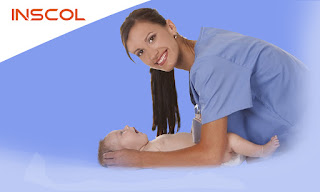The baby boomer generation is entering retirement years and the existing nursing force is retiring. With this, the demand of trained nurses is increasing rapidly, leading to a shortage in many countries.But, nursing was considered a career with few options and fewer wages previously, which put off many aspiring candidates. However, it has changed in the recent years with the rise of new nursing fields and good wages.
If you too are interested in nursing and want to earn good wages, then here are the best fields in this profession, based on wages.
These nursing professionals are trained to prepare and administer anesthesia. They work in collaboration with other healthcare professionals such as surgeons and dentists. It is their responsibility to care for patients, who are unable to communicate their needs, as well as ensure their safety.They can earn up to $160,000 a year, depending on their location and experience. However, one needs the ability to handle responsibility under pressure in emergencies.
If you want to opt for this field, you need to get a master’s degree from an accredited nurse anesthesia educational program.
As a nurse practitioner in ER, you will have to do triage duty, order initial tests,and provide input and more. Dealing with stressed and sometimes grieving families is a part of this practice. You should be prepared for the fast-paced work environment combined with the stress of patients hanging between life and death.You need a bachelor's degree in nursing and proper license to enter this profession. In this field, one can earn up to $100,000 annually.
If you are confused about choosing a specialty or want to explore your potential, then you can work independently as a general nurse practitioner. It is not much different from RNs, but with your skills, you can earn good wages. You can work with family practice physicians and other healthcare professionals.In this nursing field, you can earn up to $95,000 yearly. An advanced degree (MSN) and certification as a nurse practitioner is what you need.
These trained professionals work with a specialized unit or clinic.You will need Masters of Science in nursing degree with a specialization in clinical nursing. With a busy work profile and up to $95,000 a year wages, this nursing field is a favorite of many.
These specialists care for expectant mothers and infants (after delivery). As a certified nurse midwife, you can work in OB/GYN offices, clinics, and hospitals. For this field, you need the knowledge of pregnancies, obstetrics, labor, delivery and prenatal care.You can earn up to $93,000 per year as a CNM.
In the end, choose a specialized nursing program according to your interest, and you will grow in your career.



















